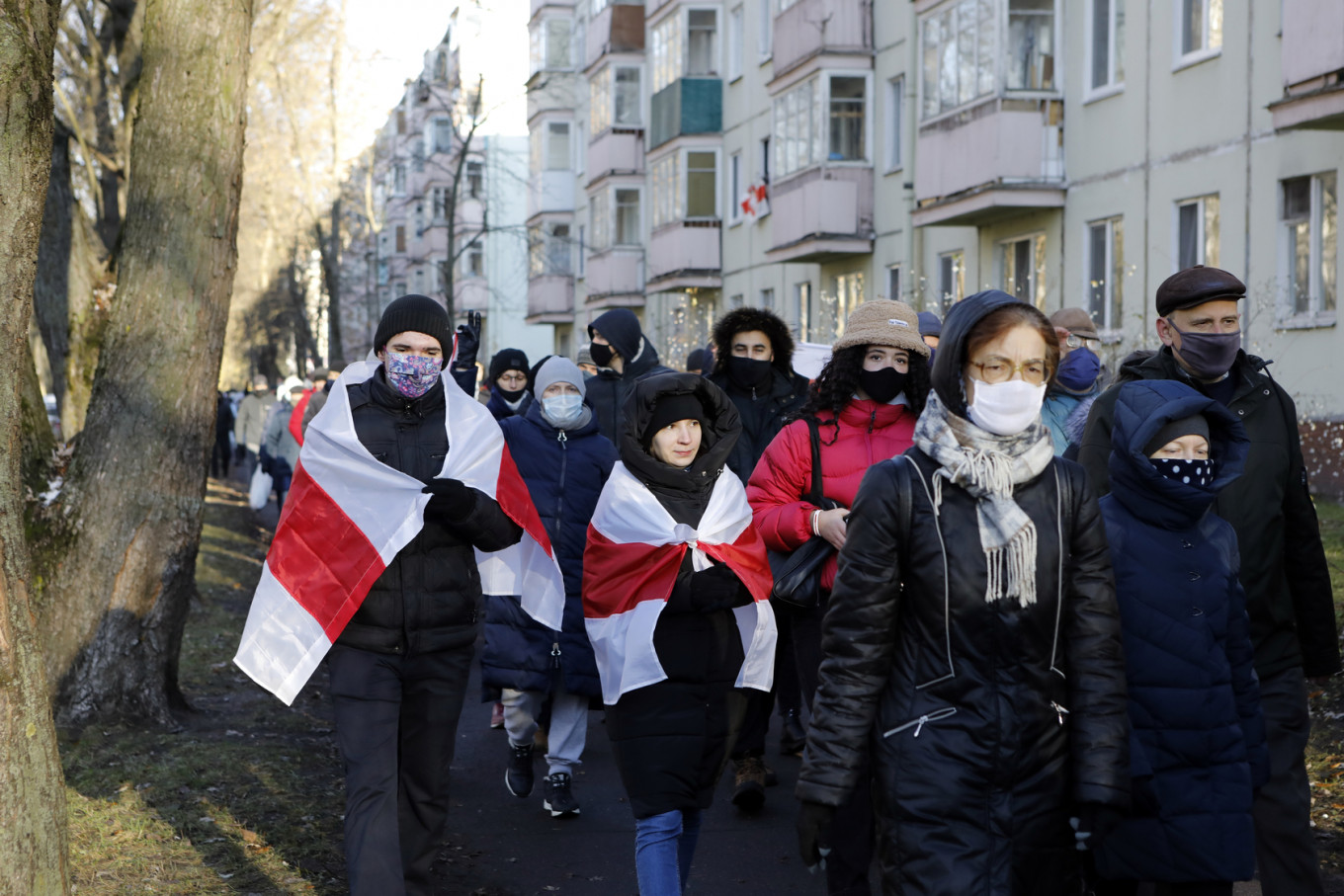
Opposition protesters in Belarus rallied Sunday in the latest of nearly four months of demonstrations against the re-election of President Alexander Lukashenko.
Social media videos showed small groups of protesters gathered in courtyards as others marched through the capital Minsk with the opposition red and white flags.
In contrast to mass Sunday protests that have taken place since the August vote, the opposition has for weeks sought to foil a toughening crackdown by staging numerous smaller protests.
An AFP journalist saw police dispersing groups of even 10 to 15 people and witnessed three arrests.
“I cannot understand how we could stop when people have suffered and continue to suffer. We cannot close our eyes to this,” Svetlana Onufrienko, a 31-year-old lawyer, told AFP.
Minsk police said that around 300 people were taken into police custody during the protests in Minsk.
Water cannon were stationed in the city center and authorities limited connections to networks such as the Telegram messaging app, which protesters use to coordinate.
Belarus has been gripped by massive protests since August after Lukashenko, 66, won a sixth term as president of the former Soviet republic.
‘Will not surrender’
The opposition says the election was rigged and political novice Svetlana Tikhanovskaya — who ran against Lukashenko in the place of her jailed husband — was the true winner of the vote.
“Each march is a reminder that Belarusians will not surrender. We will not allow our rights to be taken away and turn a blind eye to crimes,” Tikhanovskaya, 38, wrote on her Telegram channel from exile.
Authorities have cracked down sharply in recent weeks, detaining hundreds of protesters and preventing gatherings in the center of Minsk.
In response, Lukashenko’s opponents have changed tactics, calling on supporters to gather in small groups across the capital rather than staging big marches through the center.
Local media reported that several dozen meeting points were planned for Sunday across Minsk and in other cities.
In the first days of the demonstrations in August, Belarus police detained thousands of protesters, with many reporting torture and abuse while in custody.
The European Union has slapped sanctions on Lukashenko and some of his allies over election rigging and the violent response to demonstrations.
Tikhanovskaya fled to EU member Lithuania soon after the August election. She has received support from several Western leaders, who refuse to recognize the election results.
Lukashenko, who has the firm backing of Moscow, has refused to step down and instead has proposed constitutional reforms in a bid to placate the opposition.
